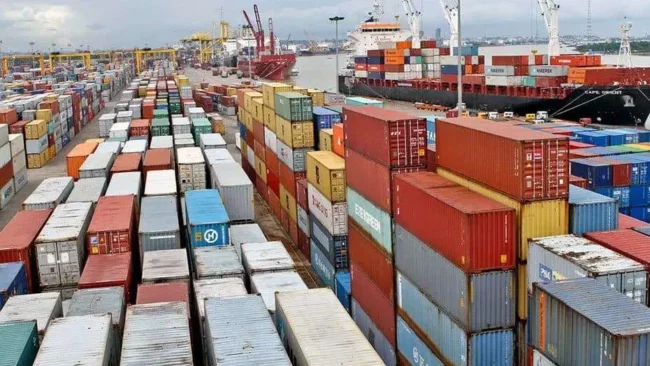Industry operators and analysts have revealed that transporting crude oil by barges significantly raises production costs and delays delivery timelines compared to pipeline transportation.
This shift in transportation method has emerged largely as a response to challenges such as pipeline vandalism, prompting stakeholders to explore alternative options despite their drawbacks.
Recall that the Nigerian Upstream Petroleum Regulatory Commission (NUPRC) said it had successfully reduced crude oil theft by about 90 per cent since its establishment in 2021,dropping from a staggering 102,900 barrels per day in 2021 to 9,600 barrels per day in 2025, a feat credited to the introduction of innovative metering audits and digital tracking systems. The NUPRC said this progress reflects successful joint efforts involving the commission, the Office of the National Security Adviser, the military, oil operators, and other relevant parties using both kinetic and non-kinetic approaches.
According to the Commission’s chief executive, Engr. Gbenga Komolafe, these advances stem from President Bola Ahmed Tinubu’s directive to eliminate oil losses using both kinetic and non-kinetic approaches.
He also said the Advanced Cargo Declaration Regulation, which digitally tracks every barrel of crude loaded onto tankers in real time, right through to the point of discharge, has aided in reducing crude oil losses. The system is designed to instantly flag discrepancies, such as a tanker discharging cruder than legally loaded.
Despite these assertions, oil industry operators and analysts believe that the main reason for the drop in oil theft in the Niger Delta is companies’ use of barges to transport oil, thus bypassing the pipelines. They maintain that incessant attacks have compromised the integrity of the pipelines.
Speaking exclusively with LEADERSHIP, the managing director of Deepshores Energy Limited, Nneka Zainabu Obi, said that barge transport inevitably increases operational expenses.
“Instead of simply connecting to a pipeline and sending crude through to a centralised point for sale, operators must hire barges, which introduces additional costs including manpower expenses,” she explained.
Obi added that the process of moving crude by barge is longer and slower, with efficiency directly influenced by the volume of crude being transported.
Beyond cost and speed issues, Obi pointed out regulatory hurdles surrounding barge usage.
Since transporting crude by barge is not a standard industry practice, operators are required to obtain extra approvals from regulatory bodies, which complicates and lengthens the process further.
Regarding the role of barge transportation in the broader supply chain, Obi warned against viewing it as a long-term strategic solution. “It can never be a strategic long-term option; pipelines remain the better and more efficient mode of crude transfer.
The current reliance on barges is primarily due to pipeline vandalism causing significant losses,” she stated. Obi stressed that this method should be considered only as a temporary workaround while pipeline issues are addressed.
On the subject of pipeline vandalism, Obi urged the government and oil producers to engage directly with the communities responsible for the disruptions. She recommended a partnership approach to meet community needs in a way that benefits both the local population and the industry. “If the government makes promises to these communities, it must honour them to avoid breeding anger and mistrust,” she said.
Following such engagement, Obi advised that pipelines should be restored to optimal condition and maintained regularly to prevent further damage., Obi also expressed concerns about the overall consistency and reliability of crude delivery via barges. The dependence on hired manpower and additional resources creates variability in supply chain efficiency. “Unless operators invest in owning their own barges, delivery will experience frequent ups and downs, leading to poor customer experience,” she warned.
Contrastingly, Ademola Henry Adigun, an experienced oil policy expert who has supported Nigeria’s oil reforms since 2011, considers barge transportation the most viable alternative under current circumstances. He noted that the shift to barges began approximately three years ago as pipeline vandalism surged. While acknowledging the increased costs borne by operators, Adigun emphasised that barge transport helps keep the oil industry operational and offers improved efficiency in the absence of reliable pipeline infrastructure.The debate underscores the critical need for sustainable solutions in Nigeria’s crude oil transport logistics. While barges provide a necessary stopgap amid pipeline disruptions, restoring and maintaining pipeline infrastructure remains essential to enhance efficiency, reduce operational costs, and maintain steady crude supply in Nigeria’s oil sector.






